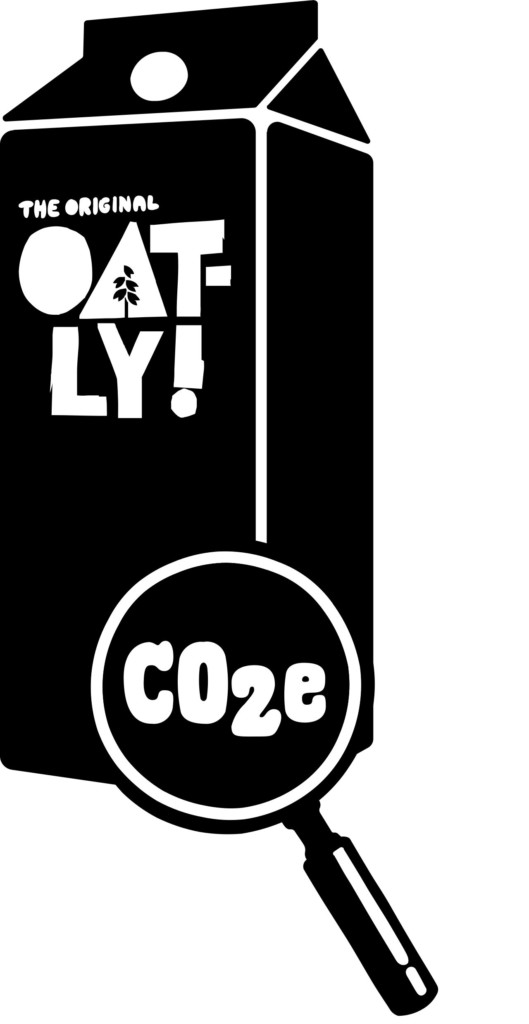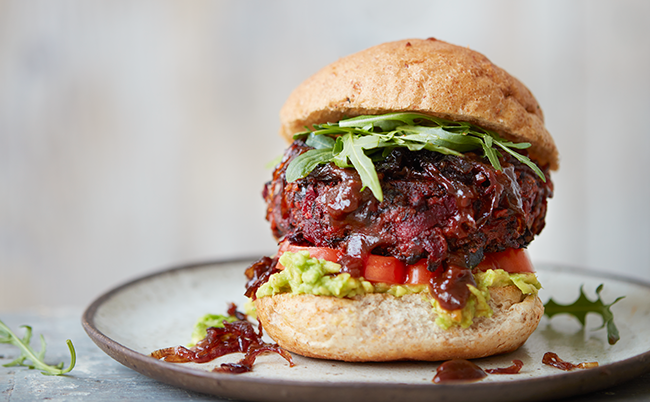Oatly: “Our Food System Still Clearly Favors Products of Animal Origin” – vegconomist

Swedish oat specialist Oatly offers a wide portfolio of plant-based dairy alternatives, including alternatives to milk, ice cream, yogurt, cooking creams, spreads, and on-the-go drinks. The company has been campaigning for equal treatment of plant-based alternatives and animal products at the political level for some time and, together with various partners, is making concrete demands on politicians.
We spoke in an interview with Svenja Fritz, Head of Communication & Public Affairs at Oatly for Germany, Austria, Switzerland, and Poland. Since 2021, Fritz has been committed to driving change towards a more sustainable food system. She previously held senior positions in the House of Representatives in Berlin, in the Ministry for Integration in Baden-Württemberg, and in the German Bundestag. She previously worked as press spokesperson for the Senator for Economic Affairs and Mayor of Berlin.
Ms. Fritz, Oatly is actively involved in socio-political debates about sustainable nutrition. As Head of Public Affairs, what topics are you currently dealing with in this area?
A big focus is on our Together for Carbon Labeling (TCL) initiative. Here we are committed to greater CO2e transparency across the entire food industry. With partners such as FRoSTA, Erdbär, Veganz, Nestlé, and HelloFresh, we are developing a uniform, industry-wide standard for labeling climate impacts on food. Oatly will also be a little louder this year, which I’m really looking forward to.
We are also closely following the VAT reduction on plant-based drinks to 7% instead of 19%, rightly suggested by the SPD and the Greens. An adjustment that is long overdue and sends an important signal – politicians must finally strengthen climate-friendly eating habits and ensure fair competitive conditions.
What is the revision of the DGE nutritional recommendations all about and why is it important for Oatly as a company to take a position on it?
The DGE is comprehensively revising the food-related nutritional recommendations on behalf of the BMEL. These are important for Germany because all public facilities such as canteens are based on them. For the first time, they now also want to take into account the environmental impacts of food – such as greenhouse gas emissions and land use.

People who follow a plant-based diet are hardly represented in the current omnivorous nutritional recommendations and you won’t find fortified plant drinks, such as those produced by Oatly as a substitute for cow’s milk. This is worrying and contradicts the IPCC’s recommendations to switch to plant-based diets (IPCC 2023). Countries such as Sweden, Great Britain, and Australia have already made further progress and have consequently supplemented their nutritional recommendations with fortified plant drinks. Germany must now finally follow suit!
What specific demands do you have of the DGE?
We see the DGE’s plan as urgently necessary to adapt the guidelines to the changing nutritional habits of the population and to also include sustainable aspects. After all, Germany now has a significant proportion of 44% flexitarians (BMEL 2022) and vegan and vegetarian products are becoming increasingly popular in consumers’ everyday lives.
However, an initial presentation of the underlying DGE calculation methodology showed that this has not yet been sufficiently taken into account: So far there does not seem to be any plan to reduce cow’s milk and dairy products to the same extent as, for example, meat and meat products. We believe it is essential that plant-based milk alternatives enriched with vitamins and minerals are finally included in the DGE’s recommendations. In addition to a favorable fatty acid composition, this would not only provide consumers with high-quality fiber, which Germans, for example, consume far too little, but would also ensure that their needs for valuable micronutrients, corresponding to those in cow’s milk, are met.

A change in the DGE recommendations would also be important from a sustainability perspective, as the environmental impact of cow’s milk production is significantly higher. For example, according to a recent study, the Oatly Barista sold in Germany has a 65% lower climate impact than comparable cow’s milk.
As part of the “Together for Carbon Labeling” initiative, Oatly and colleagues are calling on the federal government to draft a law on CO2e labeling on food. What are the main arguments for mandatory carbon labeling?
In order to create awareness of the climate impact of food among both food manufacturers and consumers, there is a need for mandatory and standardized CO2e labeling on food. What ends up on our plates and in our cups every day has a significant impact and is an important lever – this must be made visible so that consumers can make more sustainable purchasing decisions.
More and more food companies are reporting CO2e values for their products, but these footprints are based on different calculation methods and presentation methods, so no comparison is possible. The goal of TCL is therefore the scientifically based development of a standardized and product-specific CO2e calculation for food and its transparent communication.

How is this progressing? Are you in contact with the federal government and are you optimistic that such a bill will be implemented in the current legislative period?
TCL’s central demand is the submission of a draft law in Germany during the current legislative period. Finally, the coalition agreement emphasized that the development of ecological footprint criteria should be supported, so we no longer have time to waste. TCL is in constant communication with the federal government and we were able to present the prototype of a standardized CO2e score for the food industry at the “Climate-Friendly Food and Drink” event in July under the patronage of the office of SPD MP Rita Hagl-Kehl in the Bundestag.
In four further events in the Bundestag in the coming months, we will discuss with members of parliament what the framework conditions and standards for industry-wide CO2e labeling of food could look like. We focus on the three interest groups of science, business, and society, which play an important role in the process of introducing legally binding and regulated climate labeling of food. Germany has the opportunity to implement the important climate protection measure that consumers have long been demanding during this legislative period and to take on a pioneering role internationally. We are pushing this forward.
In your opinion, what are the biggest opportunities and challenges for companies in the field of plant-based MoPro alternatives in the coming years?
Consumption of drinking milk continues to decline, while the positive market development in the plant-based product category continues. Consumer preference and demand for plant-based milk alternatives is increasing rapidly.
However, unequal treatment and unfair competitive conditions are hindering the change towards more plant-based eating habits because our food system still clearly favors products of animal origin – as can be seen, for example, in the very high subsidies for the dairy industry, the aforementioned tax disadvantages for plant-based foods or the ongoing debate in EU member states around the tightening of designation protection. It is therefore particularly important to us to continually point out this unequal system and to call on politicians to create sustainable framework conditions!
Further information about Oatly can be found at: www.oatly.com/de




